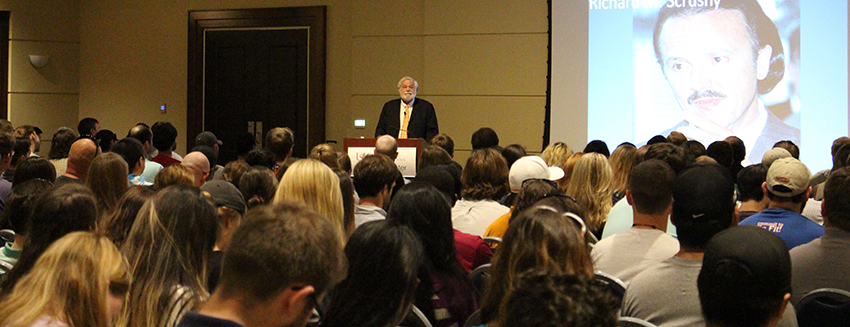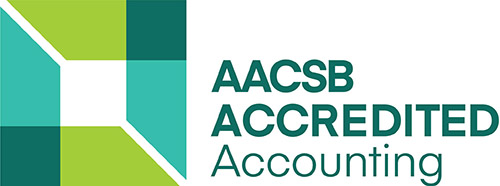Executive Leadership Series – Aaron Beam addresses students: “Fraud, Lies, and Hermes Ties”

On March 28, the Mitchell College of Business hosted an Executive Leadership Series lecture featuring Aaron Beam, a founder and the first CFO of HealthSouth. Well known for being involved in one of the most significant accounting frauds in U.S. business history, his message of ethical behavior in the workplace was highly anticipated by students and faculty alike. This cautionary tale of sorts sparked thought and conversation on the principles of ethics, and carried over into many classrooms during the remainder of the week.
HealthSouth, founded by Richard Scrushy, Aaron Beam and others in 1984, experienced rapid growth in the beginning. In two short years, the company went public and from an outsider’s perspective, things could not be going better. Beam described a very different situation however. He expressed feeling pressure from Scrushy to make the company look good, despite a slowdown in company growth. He, along with other financial officers, were expected to maintain the highly successful image that was established early on. In the beginning he thought, “What could go wrong?” By 1995, HealthSouth had 40,000 employees, representation in all 50 states and was number 350 on the Fortune 500 list. Beyond making the numbers look good, the unethical behavior transitioned to include hiding actions from auditors. He mentioned going as far as making acquisitions to cover up the fraud.
Beam also shared that in the first business meeting accompanying Scrushy, Mr. Scrushy credited Mr. Beam for the work he did on a project although he had not contributed to the project. Beam admits he did not correct Scrushy in the meeting and believes at this moment Scrushy was testing his honesty. His failure to speak up and correct the record revealed his willingness to be dishonest on what seemed at the time to be an insignificant matter.
Beam described how his personal characteristics changed as he engaged in unethical behavior. He noted, “Being a millionaire changed me a bit.” Like the company, his life became a game of maintaining an external image of success and prestige. He admitted to owning several beach condos, building a new home, and buying new cars each year. As the truth came to light and the company’s reputation began to crumble, Beam recognized that greed had taken over his life.
Focused on creating a learning opportunity from the downfall, he expressed to students how important it is to put ethics first. He expressed the importance knowing how to deal with the ethical dangers that may be experienced following graduation. Students were encouraged to never fall for the idea that the behavior will only happen once. He also encouraged students to speak up when something is unethical. If they do not, who will?
The Mitchell College of Business stresses ethical decision making in all classes taught. This first-hand account of an ethical downfall will serve as a lasting impression on the students in attendance, showing them that it really can happen.



